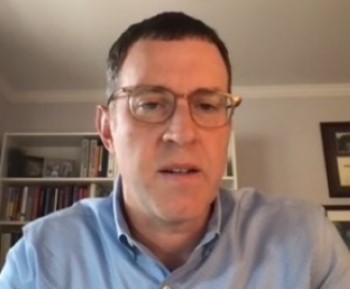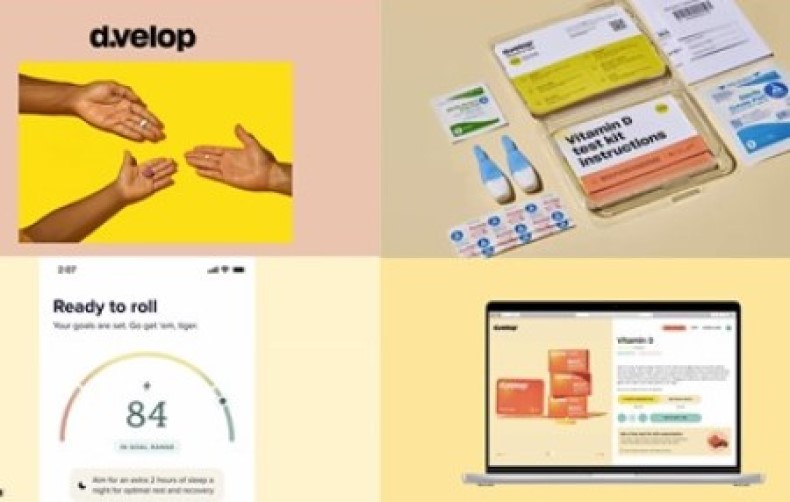More Comfortable Than Sample Collections, Questionnaires Drive Personalized Nutrition Sales
Executive Summary
Consumers’ saliva, blood or stool samples provide more information but questionnaires are more comfortable, says Nate Matusheski of DSM Nutritional Products business Hologram Sciences. “If you think about the user experience, there's a kind of a big difference in invasiveness across these different categories.”
Questionnaires are “low hanging fruit” among options for receiving information about consumers’ health and diets, but they are fruitful for personalized nutritional product firms and can become even more, says an executive with a DSM Nutritional Products AG business incubator.
While consumers’ saliva, blood or stool samples used for tests will provide more information than can be stated in questionnaire answers, questionnaires have the advantage of being more comfortable, said Nate Matusheski during a Council for Responsible Nutrition precision nutrition webinar on 25 October.
“If you think about the user experience, there's a kind of a big difference in invasiveness across these different categories. The only thing really a person is giving away to a company with a questionnaire is their time,” said Matusheski, chief science officer for Hologram Sciences Inc.
Referencing Natural Business Journal data, Matusheski noted between 85% and 90% of the information personalized nutrition product providers, which typically prioritize monthly subscriptions, receive from consumers comes through questionnaires.
Hologram, launched by DSM Nutritional Products in April 2021 with a $100m investment, has found, though, that consumers have limits on the time they’ll use for questionnaires.
“It needs to be to the point, they need to understand what they're going to get out of it. But they are giving their time,” he said.
 hologram cSO nate Matusheski: "in some cases, the low-hanging fruit really can go a long way to help individuals make better choices and get better access to wellness products.”
Source: Council for Responsible Nutrition
hologram cSO nate Matusheski: "in some cases, the low-hanging fruit really can go a long way to help individuals make better choices and get better access to wellness products.”
Source: Council for Responsible Nutrition
“Thinking specifically about value proposition, it's like, why would this be something as a consumer, I would be interested in maintaining engagement?”
Many consumers have limits on providing fluid or other samples. Since they’re not paying for the collection kits personalized nutrition marketers send them, their motivation can succumb to their hesitancy.
“When we get into microbiome, now we have to take a sample and send it in, which for many people maybe, with a stool sample there's not a lot of comfort,” said Matusheski.
Consumers can be just as sensitive about blood samples. “That introduces pain, and having to see your own blood,” he added.
Matusheski noted that his commercial presentation came during a webinar otherwise featuring nutritional and dietary researchers’ presentations about developments in precision nutrition sciences.
“We tend to call this in the industry personalized as opposed to precision, just because personalized is a term that kind of is more of a consumer term. It tends to cut across different aspects of lifestyle and consumer products,” he said.
Little Motivation To Return Free Tests
The experience of the first firm to receive a Hologram investment, d.velop, provided “an interesting learning” about consumers’ motivation to collect and submit samples.
“If someone were buying this test kit, and they were paying money for it, they were like, ‘I'm committing to this, I'm going to stick my finger and do this’,” Matusheski said.
“But if you just send out a test kit, people get it and they're like, ‘Great, this is awesome. Well, I have to stick my finger. Maybe I'll do that tomorrow. I’m going put it in this drawer and I'll do that tomorrow. I definitely want to do it. I'm just not sure if I'm going do it right now.’ And then it just doesn't come back.”
He said the best questionnaire-driven approaches use scientific advisory boards to help develop the material and in reviewing and vetting recommendations made in response to a consumer’s responses.
“I think it's important to remember that there's a place for these and in some cases, the low-hanging fruit really can go a long way to help individuals make better choices and get better access to wellness and wellness products.”
Attract Business, Keep Customers
Matusheski said Boston-based Hologram is “an independent subsidiary of DSM Nutritional Products” serving as a personalized nutrition brand incubator and business partner.
“We're kind of in a nice position where we benefit from DSM financial backing, technical, regulatory, innovation, legal support. But we also have the ability to do things quickly and to be entrepreneurial and how we work,” he said.
 one of hologram's investments was in d.velop, which uses its tests as a promotion to drive subscriptions sales.
Source: Hologram Sciences
one of hologram's investments was in d.velop, which uses its tests as a promotion to drive subscriptions sales.
Source: Hologram Sciences
He referenced Natural Business Journal data indicating the US personalized nutrition market grew 31% in 2021 and is projected to reach $1bn in 2024.
“I think there's, of course, a ton of interest in the nutrition industry around this topic … but with all that growth also comes risk,” Matusheski said.
Much of the risk is in turning consumers who show interest in personalized nutrition into customers.
“It's important to keep in mind that, for us to have a sustainable business model, you have to have a flywheel. You have to keep spinning that flywheel bringing people in getting people to maintain their interest,” Matusheski said.
Does Testing Drive Subscriptions?
In the same month it was launched, Hologram made its first investment, in the d.velop brand to use its ampli-D ingredient.
D.velop “leverages a test kit to help users get into the optimal vitamin D range. This is important because it's kind of an immunity focused brand, vitamin D levels being very important for supporting immune system health,” Matusheski said.
The test component of the d.velop product is used promote the brand as a subscription incentive.
“If a person subscribes to get a two-pack test kit, and they can test their levels, when they start using the product, they can test the product tester levels later and see that the product is working for them. We actually have a higher subscription rate than the industry average,” Matusheski said.
Hologram’s most recent investment came earlier in October with Maeil Health Nutrition, which will market d.velop personalized vitamin D, starting with its Selex nutritional line.
Netherlands-based Royal DSM NV also has a direct presence in the personalized nutrition sector, including a collaboration launched in November 2020 with Chinese firm Huami Corp. to develop wearable technologies and health tracking for personalized nutrition. The firms combined Humai’s Amazfit wearables and PAI (personal activity intelligence) score with DSM’s AVA digital platform, which it acquired in 2019. (Also see "With ‘Significant Headroom For Growth,' Is Standalone Space Ahead For DSM Nutrition?" - HBW Insight, 17 Feb, 2021.)
In September 2021, DSM announced it would pull out of industrial chemicals and materials industry and focus on health, nutrition and bioscience, which accounted for nearly 80% of its total sales. (Also see "Royal DSM Fills Plate With Nutrition, Health And Bioscience, Plans To Slice Off Chemical Business" - HBW Insight, 14 Sep, 2021.)
US firm Pharmavite LLC in May 2020 entered the personalized supplement space with Nurish by Nature Made. The brand from the West Hills, CA-based subsidiary of Otsuka Pharmaceutical Co. Ltd. offers 30-ay supplies of vitamin packets delivered to customers after they complete online assessments evaluating core nutrient needs based on age, diet, lifestyle, wellness and general health. (Also see "Pharmavite's Nurish by Nature Made Subscription Line Extends With Active, Nutrition, Relax Packs" - HBW Insight, 15 Jul, 2021.)
Smaller firms in the market include Vous Vitamin LLC, specializes in personalized multivitamins packaged in two tablets taken daily. The Highland Park, IL-based earlier in 2022 noted that consumers paying for personalized nutritional supplement regimens prefer manageable doses over packs containing so many pills they become overwhelmed. (Also see "Is More Always Better? Vous Vitamin CEO Says Personalized Product Sales Grow On Fewer Doses" - HBW Insight, 25 Feb, 2022.)
